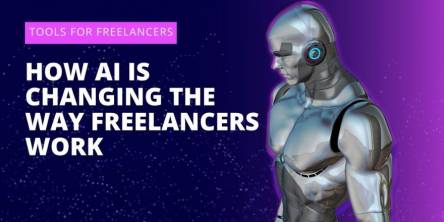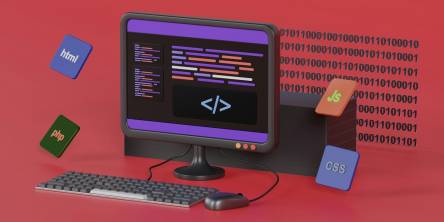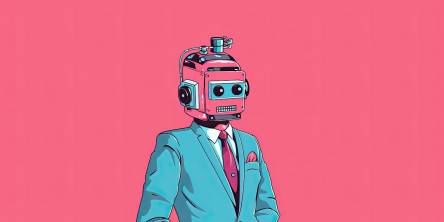The Role of AI in Personalized Healthcare: Benefits and Challenges

Artificial intelligence is a powerful technology, fundamentally transforming the practice of medicine and how medical care is delivered.
The use of AI in Healthcare has had a significant impact on the manner and efficiency in which healthcare systems achieve their goals of improving the patient's and the caregivers' experience while also reducing the ever-rising cost of care.
By increasing the availability of multi-modal data and enabling the delivery of precisely tailored treatments, AI Development Services have proved that the traditional one-size-fits-all system of healthcare is indeed in need of an overhaul.
In this article, we discuss the emerging trends in the personalization of healthcare services made possible using AI, how they are influencing our lives, and the challenges that are yet being faced in the field.
For those exploring the intersection of technology and healthcare, understanding how AI is transforming personalized care is crucial, and this discussion on ux repository tools offers a deep dive into the subject.
Meaning and Need of Personalized Healthcare
The US National Human Genome Research Institute defines personalized healthcare as “an innovative approach that uses information about an individual's genomic, environmental, and lifestyle information to guide decisions related to their medical management.”
Also known as precision medicine, its goal is to provide a more precise approach towards the prevention, diagnosis, and treatment of diseases. It allows healthcare professionals to understand the unique characteristics specific to each individual and achieve better outcomes.
The need and significance of personalized healthcare has been highlighted by the factors mentioned below -
- Exposome research has brought to light the correlation between cumulative environmental influences and the associated biological responses, and the need for different approaches to treat and diagnose patients from different environmental conditions.
- In a paper published in 2011, authors Dr Hood and Dr Friend made an oracle about the movement of medicine from a reactive to a proactive discipline called P4 medicine (participatory, personalized, predictive, and preventive medicine)
- Healthcare Software Development has now sufficiently advanced in sophistication and reliability to handle critical tasks like supporting healthcare professionals in choosing the treatments, drugs, and intervention points tailored to everyone, reducing pointless trial-and-error treatments.
How AI Enhances Healthcare Personalization
1. Predictive Modelling and Early Detection
According to the CDC over 70% of medical decisions involve assessing results from laboratory tests that are imperative to the early identification of complex diseases such as cancer or organ failure.
AI algorithms integrate with the data workflow of laboratories to help predict the risk and progression of diseases by combining data from reports with data about the individual’s genetic makeup, lifestyle, and medical history.
The extensive pattern recognition capabilities can detect even subtle signs indicating the onset of diseases to let doctors proactively develop strategies to prevent and manage them. Timely interventions lead to improved outcomes and a tremendous fall in mortality rates.
2. Real-Time Monitoring and Diagnostics
Healthcare software development helps use AI to process and visualize the vast amounts of data collected from wearable devices and IoT technologies allowing clinical care specialists to remotely and continuously monitor patients.
AI development services also power therapeutic drug monitoring that measures several details of an individual’s blood, ensuring optimal dosing adjusted to their specific metabolism and clearance rates while avoiding toxicity.
The continuous feedback of health status, vital signs, activity levels, sleep patterns, etc. empowers medical professionals to make proactive interventions and even lifesaving measures.
3. Pharmacogenomics Testing
While the rising costs and extensive attention needed in treating chronic diseases are well known, pharmacogenomics (PGx) is a conglomeration of pharmacology and genomics that is now being used to address this challenge by identifying the unique genetic markers of patients.
This involves analysing vast amounts of data about the person’s genetic variations and doing this requires the extensive support of Machine Learning (ML) and Artificial Neural Networks (ANN).
Healthcare software development services power these AI components to sift through the extensive data and analytics to identify dosages and drug reactions. Genes significantly impact treatment strategies and dosage for most diseases. Especially diseases like cancer and neurodegenerative diseases.
Drug Discovery and Development
Drug discovery is yet another avenue of healthcare on which the abilities of AI have shown tremendous impact. By running complex simulations of molecular interactions and the behavior of potential compounds in the human body, researchers can tremendously reduce the time and effort needed to identify promising drugs.
Besides expediting the drug discovery pipeline, the technology also increases the probability of developing drugs tailored to specific patient populations by aiding in the identification of potential drug targets unique to that population.
Top 6 Benefits of AI in Personalized Healthcare
1. Diagnostics
AI-driven diagnostic tools can analyze medical images and data at incredible speeds, enabling faster and more accurate diagnoses. Speed is of the essence for acute conditions like strokes or heart attacks, and by identifying patterns in complex datasets that would otherwise be missed by human observation, AI helps diagnose and treat such conditions. Early detection allows for more effective treatments and better patient outcomes.
2. Personalized Medication Regimens
AI can design optimized medication schedules and doses tailored to specific individual requirements, mitigating chances of adverse reactions to the administered drugs and automating the execution of the planned schedules to ensure that the prescribed medications have been received by the patient and that the specifics of the same is logged and recoded of review.
3. Wearables Devices and Smart Apps
AI empowers patients to actively monitor and manage their health. Wearable devices and mobile apps can collect information based on pattern recognition and predictive analytics to help analyze the metrics and enable people to monitor and improve their vitals and health metrics. This helps patients adhere to treatment plans and helps individuals manage existing conditions or simply just lead a healthier life.
4. Patient Records
By using natural language processing (NLP), AI can automate administrative tasks like extracting information from clinical notes, reducing the burden of manual data entry. This allows care providers more time they can devote to patient care and ensures that the medical history data is free of errors and missing information.
5. Treatment Efficacy
Highly personalized treatment plans tailored to the unique genetics of each patient's lifestyle and medical history are made possible by the multimodal analysis capabilities of AI. Individualized strategies for diagnosis and intervention help prevent the progression of diseases, enhance the effectiveness of treatments, reduce complications, improve survival rates, and enhance quality of life.
6. Financial Benefits
AI can help reduce unnecessary tests, procedures, and hospitalizations by diagnosing conditions with a more holistic understanding of a person's history, genetics, and living environment. Certain wearable devices now are even approaching a level of accuracy that can match up to otherwise expensive tests. The improvement of operational efficiency and resource allocation results in significant cost savings from the healthcare providers perspective also.
6 Major Challenges and Limitations of AI in Personalized Healthcare
While AI holds great potential, its implementation in an industry as impactful and sensitive as healthcare is not without challenges and considerations that must be addressed –
1. Data Privacy and Security
Collecting and storing sensitive patient data raises significant privacy and security concerns and protecting this sensitive information from unauthorized access and breaches necessitates human oversight. Ensuring patient privacy and data security is of paramount importance. There are stringent regulations like HIPAA in the U.S. and GDPR in the European Union that must be adhered to.
2. Ethical Concerns
AI's role in clinical decision-making raises ethical issues around accountability, transparency, and fairness. To let AI influence treatment suggestions and patient monitoring, it is important to understand, address, and regularly monitor the reasoning by which these algorithms make decisions to ensure that they are unbiased and equitable.
3. Regulatory Concerns
The advancements of AI in healthcare surpass the current regulatory frameworks. Regulatory bodies must collaborate with healthcare professionals, policymakers, or an AI development services provider company to create regulations that uphold patient safety, protect privacy, and encourage innovation.
4. Legal Liability
Determining who is responsible when AI leads to adverse patient outcomes is a complex legal issue. Establishing clear legal frameworks is essential to address liability concerns when AI systems make critical medical decisions.
5. Fairness and Bias
The success of AI algorithms is rooted in the data used to train them and bias in the root data can lead to AI models making unfavourable decisions for specific demographic groups. Enhancing data diversity to detect and mitigate bias related to race, gender, or socio-economic factors carried over from historical information can be used to address this issue.
6. Interoperability
Interoperability across systems is emphasized because it cannot be expected for every healthcare institution to use the same software, language, format, or method of record keeping. As such, systems that are not compatible to share information will result in the omission of important patient data.
Let’s Wrap Up
The integration of AI in healthcare and precision medicine is bringing about an evolution in the medical sector that is making it more precise, targeted, and effective.
Healthcare has never seen the level of personalization and intuitive care that is available today, and despite there still being challenges left to overcome, the use of AI algorithms has proven its worth as an indispensable innovation, and then some.
The monitoring, data integration, analytic, and diagnostic capabilities of AI that assist in developing personalized treatment plans are nothing short of a scientific miracle and a testament to human ingenuity that saves lives and leads us to a better and fuller existence.
The future of personalized healthcare has taken wings, and the advancements in and through AI will soon unlock its full revolutionary potential.
Similar Articles
How AI SDRs turn first contact into booked meetings with smart outreach strategies in this step-by-step journey breakdown.
How AI is transforming freelancing by boosting productivity, streamlining tasks, and reshaping the future of independent work.
AI chatbots are reshaping scam prevention with real-time detection, deepfake defense, and personalized protection against cybercriminals.
When I first started working in branding, creating a logo was a long and expensive process. Ordering from a designer required weeks of discussions and a budget that small businesses often couldn’t afford.
Generative AI is not just another addition to the toolbox of products; it will soon serve as the co-pilot for the entire lifecycle process, including discovery and delivery.
Learn how AI code generation speeds up software development by reducing repetitive tasks, improving code quality, and supporting Agile and DevOps teams.
Explore how AI is reshaping the workforce, from emerging jobs and essential skills to global opportunities, and learn how to adapt and thrive in an AI-driven economy.
Artificial Intelligence (AI) has transformed most industries to be more efficient, individualized, and automate the heavily complicated tasks. Nevertheless,
Transform your photo into a Disney Pixar style character with Xole AI. Create high quality cartoon images in just three simple steps.









